Buying Guide for the Best Portable Generators
Choosing the right portable generator can be a daunting task, but with the right knowledge, you can find the perfect fit for your needs. Portable generators are versatile tools that can provide power during outages, for outdoor activities, or on job sites. To make an informed decision, it's important to understand the key specifications and how they align with your specific requirements.Power Output (Wattage)Power output, measured in watts, indicates how much electricity the generator can produce. This is crucial because it determines what and how many devices you can power simultaneously. Generators typically range from 1,000 to 10,000 watts. For small appliances and electronics, a generator with 1,000-2,000 watts is sufficient. For larger appliances or multiple devices, you may need 3,000-5,000 watts. For whole-house backup, look for 7,000 watts or more. Assess your power needs by listing the devices you plan to run and their wattage requirements.
Fuel TypePortable generators can run on various fuels, including gasoline, propane, and diesel. Gasoline is the most common and widely available, but it has a shorter shelf life. Propane is cleaner and has a longer shelf life, but requires a separate tank. Diesel is more efficient and has a longer engine life, but diesel generators are typically more expensive. Choose a fuel type based on availability, storage, and your preference for convenience and maintenance.
Run TimeRun time refers to how long the generator can operate on a full tank of fuel. This is important for planning how often you'll need to refuel, especially during extended power outages. Generators with larger fuel tanks generally have longer run times. For occasional use, a generator with a 6-8 hour run time may be sufficient. For continuous use, look for models that offer 10-12 hours or more. Consider your usage patterns and how often you can manage refueling.
PortabilityPortability is determined by the generator's weight, size, and design features like wheels and handles. If you need to move the generator frequently, look for lightweight models with built-in wheels and handles. For stationary use, portability may be less of a concern. Consider where and how you plan to use the generator to determine the level of portability you need.
Noise LevelNoise level, measured in decibels (dB), indicates how loud the generator will be during operation. This is important for comfort and compliance with local noise regulations. Generators typically range from 50 to 90 dB. For camping or residential use, look for quieter models under 60 dB. For job sites or remote areas, noise may be less of a concern. Consider where you'll be using the generator and how important noise level is to you.
Start TypeGenerators can have different start types, including manual recoil start, electric start, and remote start. Manual recoil start requires pulling a cord, which can be physically demanding. Electric start uses a push button, making it easier to operate. Remote start allows you to start the generator from a distance, adding convenience. Choose a start type based on your preference for ease of use and physical capability.
Outlets and ConnectivityThe number and type of outlets determine what devices you can connect to the generator. Common outlets include standard 120V household outlets, 240V outlets for larger appliances, and USB ports for electronics. Some generators also offer RV-ready outlets. Consider the devices you plan to power and ensure the generator has the appropriate outlets. More outlets provide greater flexibility.
Inverter TechnologyInverter generators produce cleaner and more stable power, making them ideal for sensitive electronics like laptops and smartphones. They are also typically quieter and more fuel-efficient. However, they tend to be more expensive. If you need to power sensitive devices or prioritize quiet operation and fuel efficiency, an inverter generator is a good choice. For general use, a conventional generator may suffice.
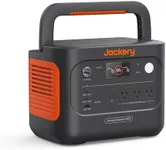
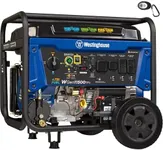
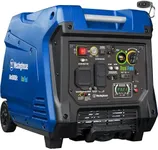
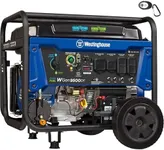
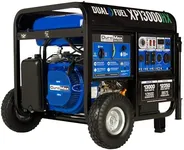


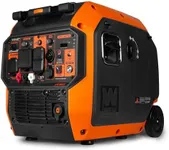


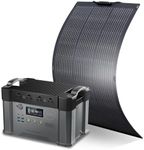

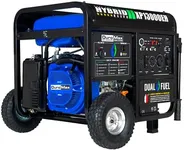

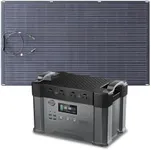
![[Upgraded Version] ALLPOWERS S2000 Portable Power Station 2000W (Peak 4000W) MPPT Solar Generator 1500Wh Backup Battery with 4 AC Outlets for Outdoor Camping RV Emergency Off-Grid](https://images-proxy.bestreviews.guide/RKciUpoEpXP6FG5NDwMBUKV-gKk=/0x150/https://m.media-amazon.com/images/I/51n9OTptdIL._AC_CX679_.jpg)





